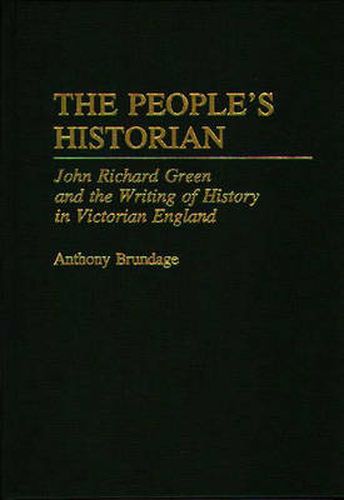Readings Newsletter
Become a Readings Member to make your shopping experience even easier.
Sign in or sign up for free!
You’re not far away from qualifying for FREE standard shipping within Australia
You’ve qualified for FREE standard shipping within Australia
The cart is loading…






In 1874, John Richard Green, a virtually unknown former clergyman, sold the rights for his school textbook, A Short History of the English People , to Macmillan for 350 pounds sterling - considered to be a generous sum for a work expected to sell a few thousand copies. The work sold 32,000 copies in its first year, and a half million copies thereafter. This publishing phenomenon was also a breakthrough in historiography, for unlike earlier histories, which focused on kings and statesmen, Green’s work revolved around the common people, their creative energy, and their devotion to self-government. Thus, Green was a critical figure in the transition from the writing of history of elites to a broader history of social and cultural change. He was also one of the last amateurs at a time when the field was coming to be dominated by academic specialists. By providing an examination of Green’s career, this book aims to illuminate a critical juncture in the history of the discipline.
$9.00 standard shipping within Australia
FREE standard shipping within Australia for orders over $100.00
Express & International shipping calculated at checkout
In 1874, John Richard Green, a virtually unknown former clergyman, sold the rights for his school textbook, A Short History of the English People , to Macmillan for 350 pounds sterling - considered to be a generous sum for a work expected to sell a few thousand copies. The work sold 32,000 copies in its first year, and a half million copies thereafter. This publishing phenomenon was also a breakthrough in historiography, for unlike earlier histories, which focused on kings and statesmen, Green’s work revolved around the common people, their creative energy, and their devotion to self-government. Thus, Green was a critical figure in the transition from the writing of history of elites to a broader history of social and cultural change. He was also one of the last amateurs at a time when the field was coming to be dominated by academic specialists. By providing an examination of Green’s career, this book aims to illuminate a critical juncture in the history of the discipline.